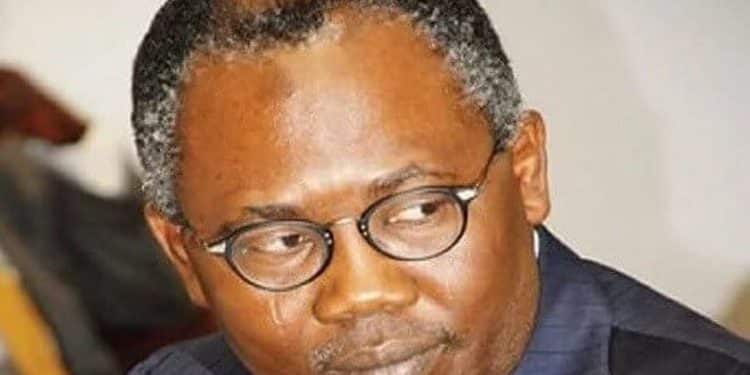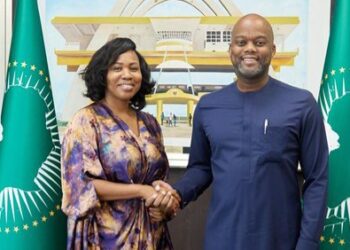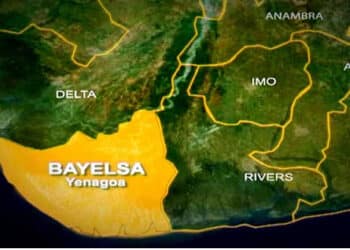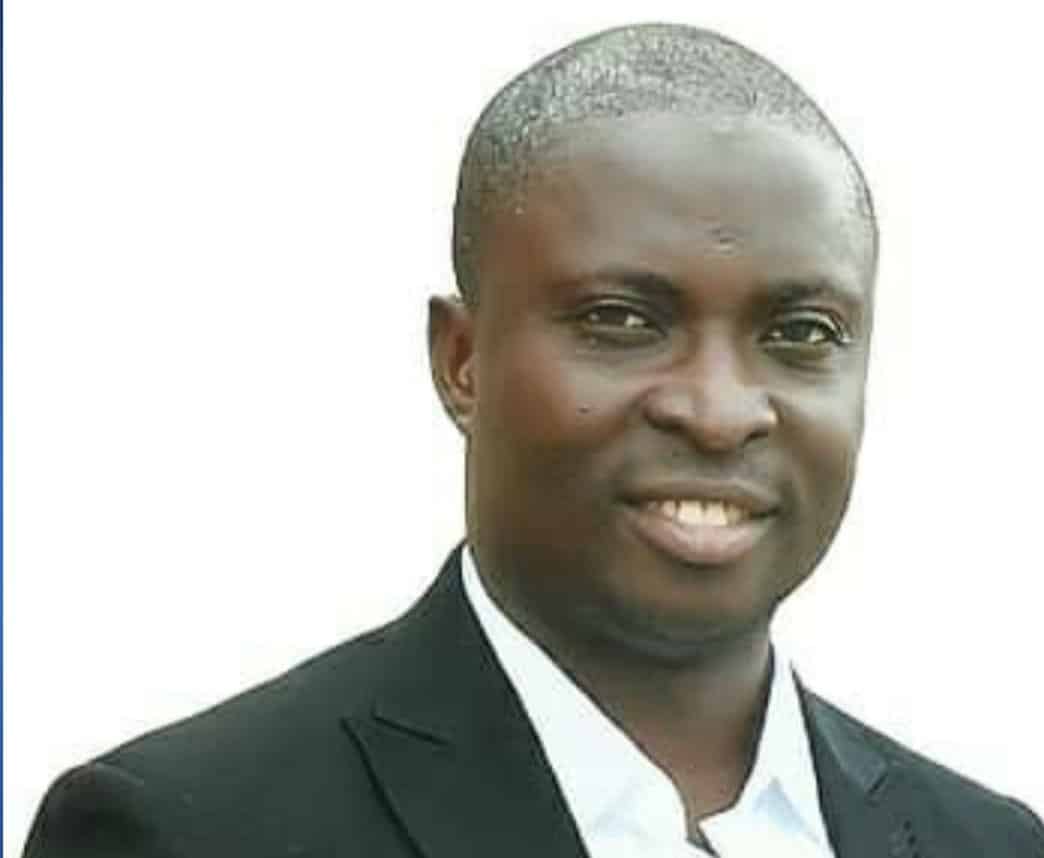A Federal High Court in Abuja heard on Thursday how ex-Minster of Justice and Attorney General of the Federation (AGF), Mohammed Adoke made payment of $2,267,200 in cash in his house to a banker.
A Federal High Court in Abuja heard how ex-Minster of Justice and Attorney General of the Federation, Mohammed Adoke made payment of $2,267,200 in cash in his house to a banker.
Rislanudeen Mohammed, a former Acting Managing Director Unity bank told the court that Adoke owed his bank N300million, but when he wanted to pay, the ex-AGF called him to his house and handed him $2,267, 200 in cash, contained in a black bag, retrieved from the boot of his (Adoke’s) car.
The ex-Unity Bank acting MD, who now works with the Bank of Industry, gave details of his relationship with Adoke while testifying as the second prosecution witness in the trial of the ex-AGF and a businessman, Aliyu Abubakar on money laundering related charges.
Led in evidence by the lead prosecution lawyer, Bala Sanga, Mohammed said, upon his appointment, he discovered that Adoke had a N300million loan facility with his bank, which was still outstanding.
The witness, who said Adoke is his long time friend, told the court that one of his colleagues sought his assistance to access Adoke for whom the N300m facility was advanced for about five years.
He said, although the facility was a temporary overdraft, which normally should not exceed 30 days, the process was not completed, including the documentation and payment of the requisite 2 per cent fee, amounting to N6m.
The witness said when he eventually met Adoke and asked why he (Adoke) borrowed N300m from his bank, the ex-AGF gave no response.
“I advised him to sign the necessary documents and pay the N6m to the bank, the witness said, adding that Adoke later signed the documents and sent the N6m, in cash, through his driver.
Mohammed said, at a point, when officials of the Nigeria Deposit Insurance Corporation (NDIC) and the Central Bank of Nigeria (CBN) came to assess Unity Bank’s liquidity status in view of the prevalence of non-performing loans, they identified Adoke’s account and threatened name it as one of those owned by politically exposed persons, who are responsible for the collapse of banks.
The witness said, because Adoke is his friend, he pressurised the ex-AGF to repay the loan to avoid his name being made public.
He said Adoke later called him to his (Adoke’s) house and handed him $2,267,200 cash that was contained in a black bag, “which he brought out from the boot of his car and transferred to the boot of my car.”
Mohammed said when the money was converted to naira, it exceeded N300m. He said the bank deducted what Adoke owed it, including the interest the loan had attracted, following which the ex-AGF sent someone to withdraw what was left and closed the account.
The witness said Adoke never had a dollar account with his bank and that there was no documentation for the cash he collected from Adoke.
He said the amount was above the threshold allowed for cash transaction under the law and that it would raised the question of money laundering had it been documented.
“The money cannot be paid into the account. It was in excesses of the threshold. It was not covered in any documentation with the bank. We did not issue any document or receipt. It did not reflect on the balance sheet of the bank.
“As at the time of the transaction, I was the Acting MD of the bank. In this case, Adoke is a very close friend of mine. I saw that his name would be damaged and I found the need to assist him,” the witness said.
Under cross-examination by Adoke;s lawyer, Kanu Agabi (SAN), the witness said he acted as an agent of Unity Bank in his dealings with Adoke.
He said his collection of cash from Adke’s house cannot be regarded as a transaction and an illegal act.
Mohammed said Adoke gave him the money in his house because he believed he was dealing with the bank.
The witness told the court that the N300m paid by Adoke was transferred to the 2nd defendant (Abbakar) to whom the title documents, earlier held as collateral, were also returned.
Earlier, the first prosecution witness, Clement Osagie, of the Foreign Exchange Department of the Central Bank, tendered 61 pages documents, relating to transactions between August and October 2013, which the court admitted in evidence.
Osagie was cross-examined by lawyer to Abbakar, Olalekan Ojo (SAN).
The trial judge, Justice Inyang Ekwo has adjourned till September 7 this year for the continuation of the cross-examination of the second prosecution witness.










